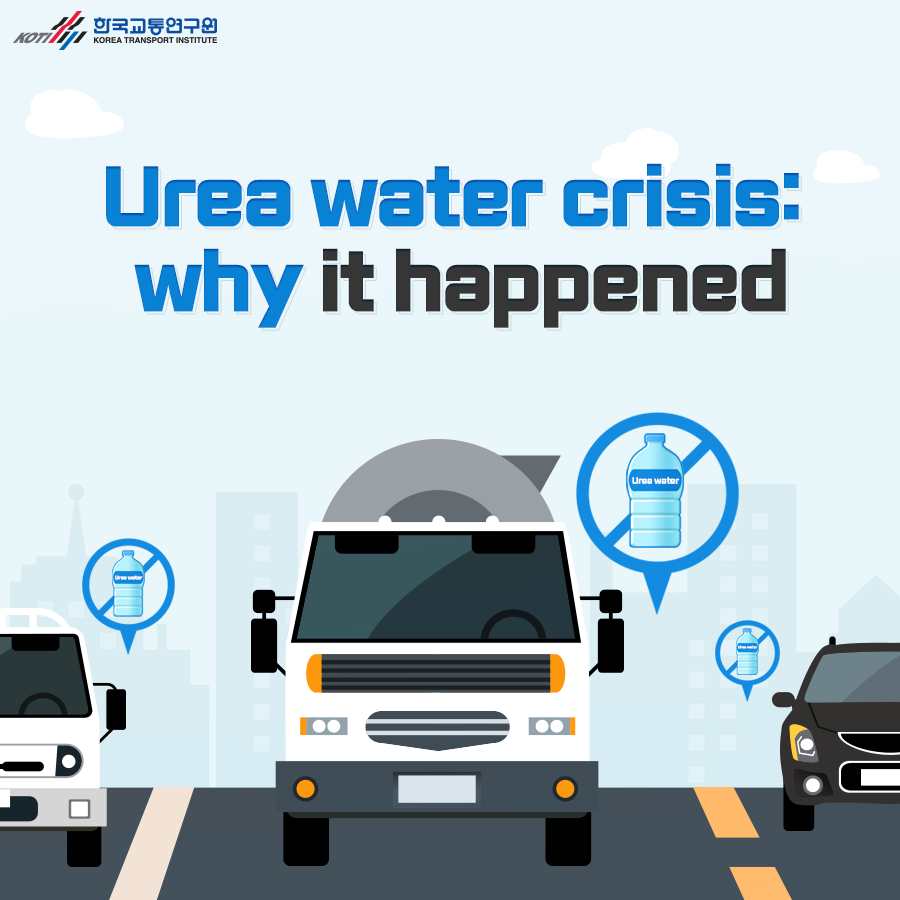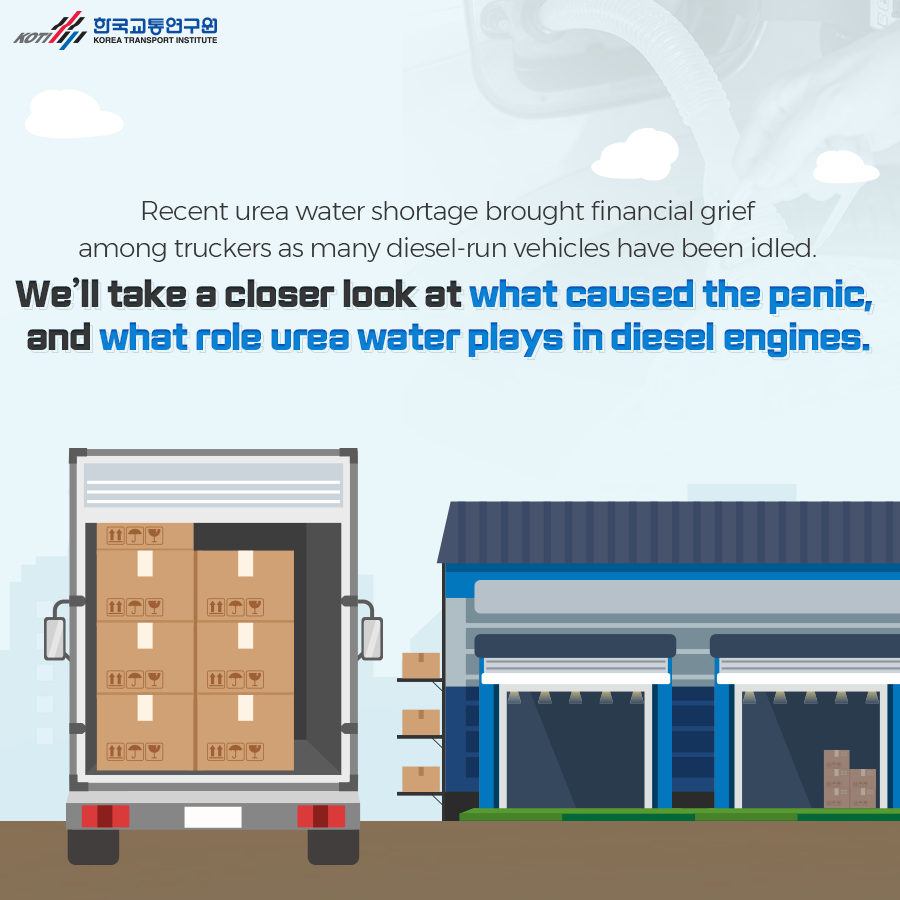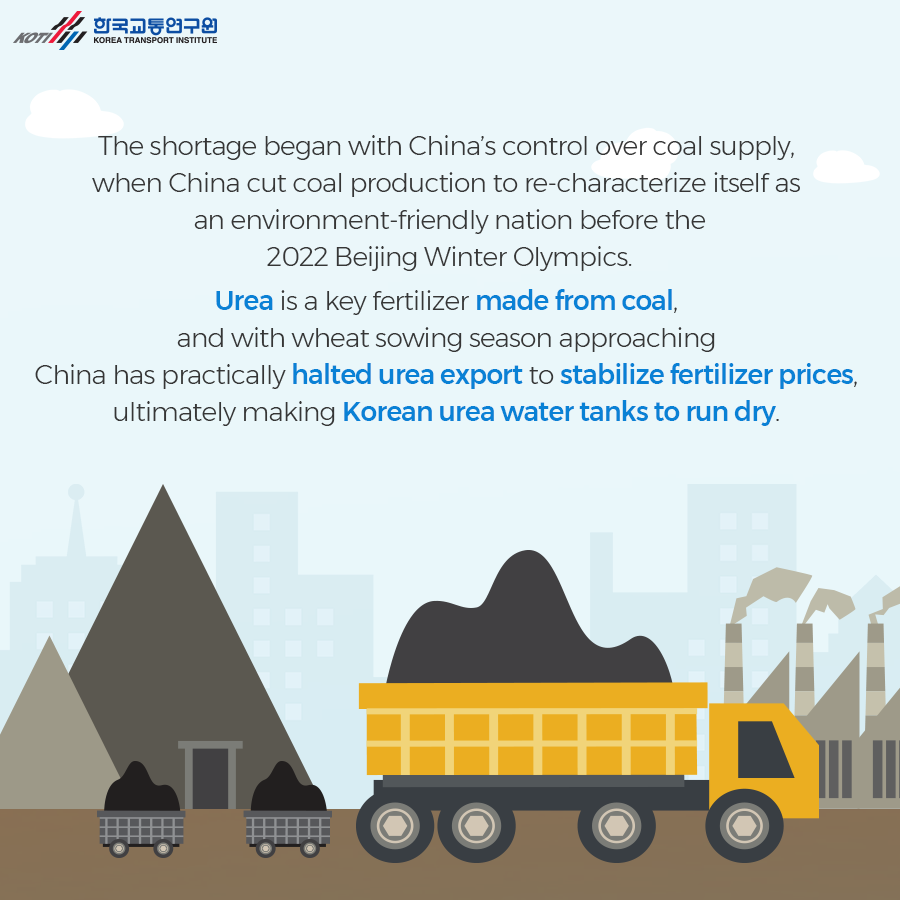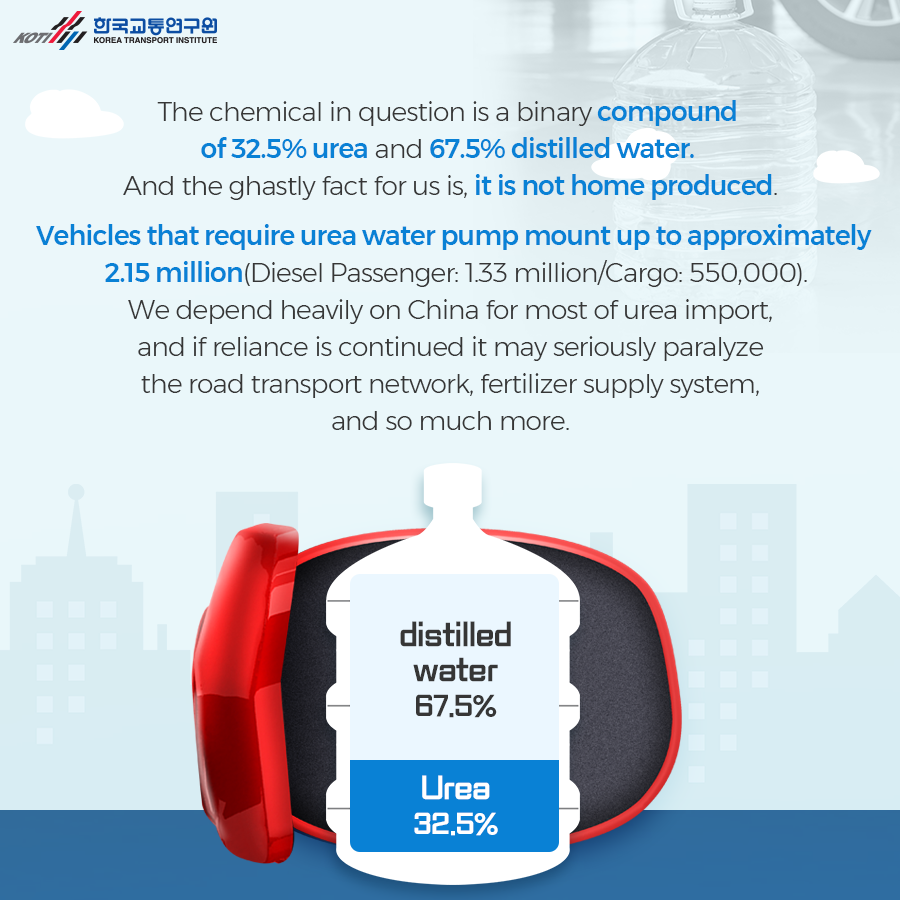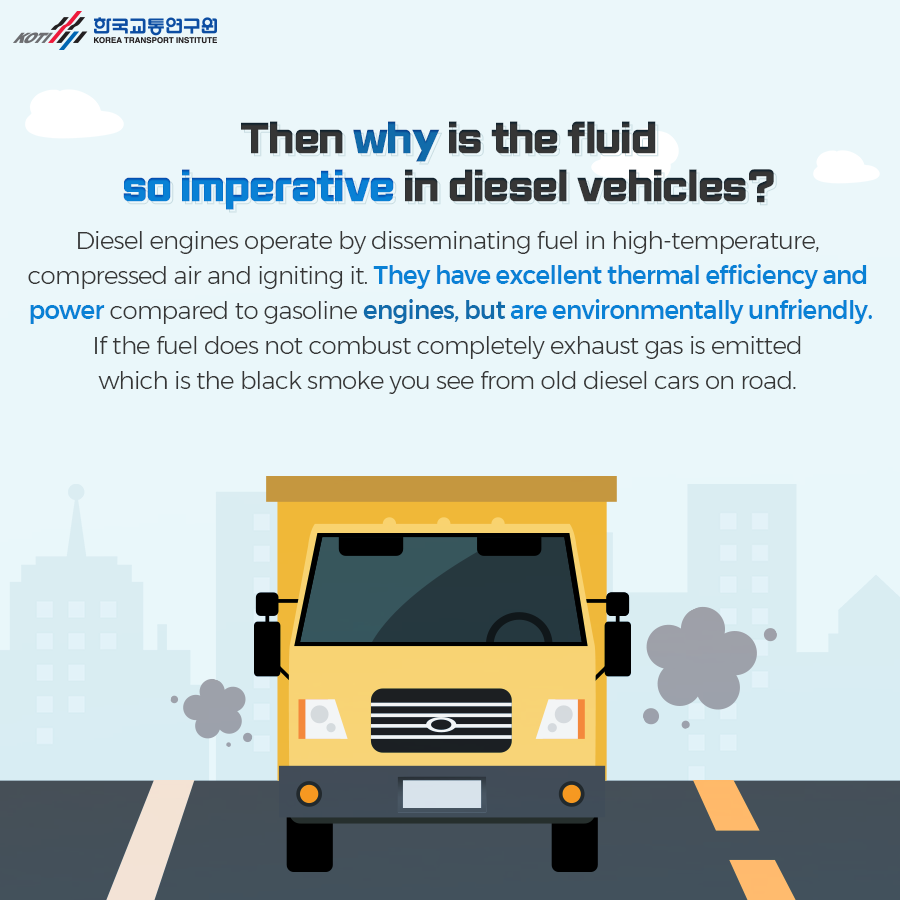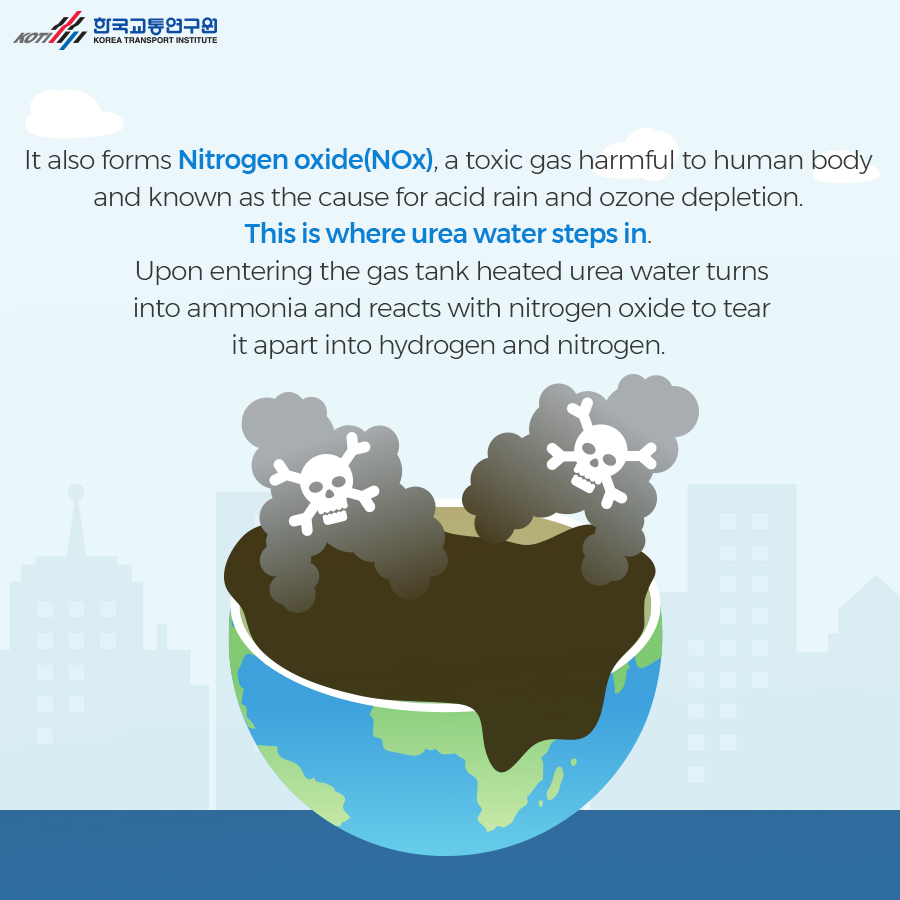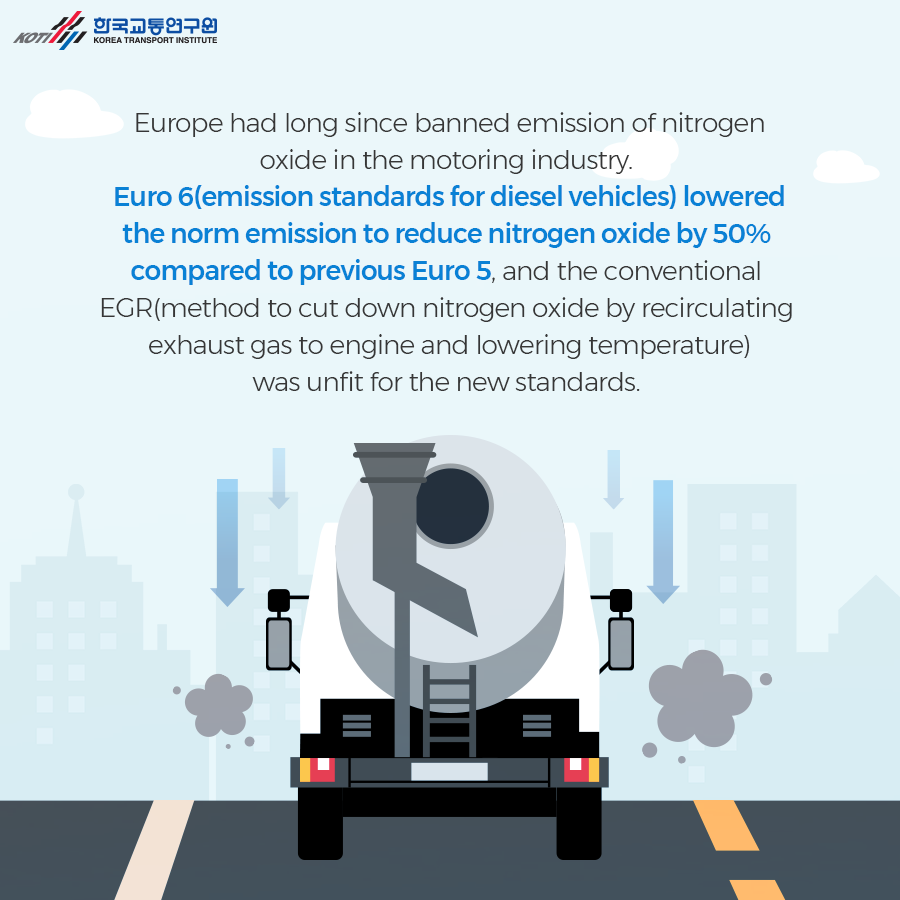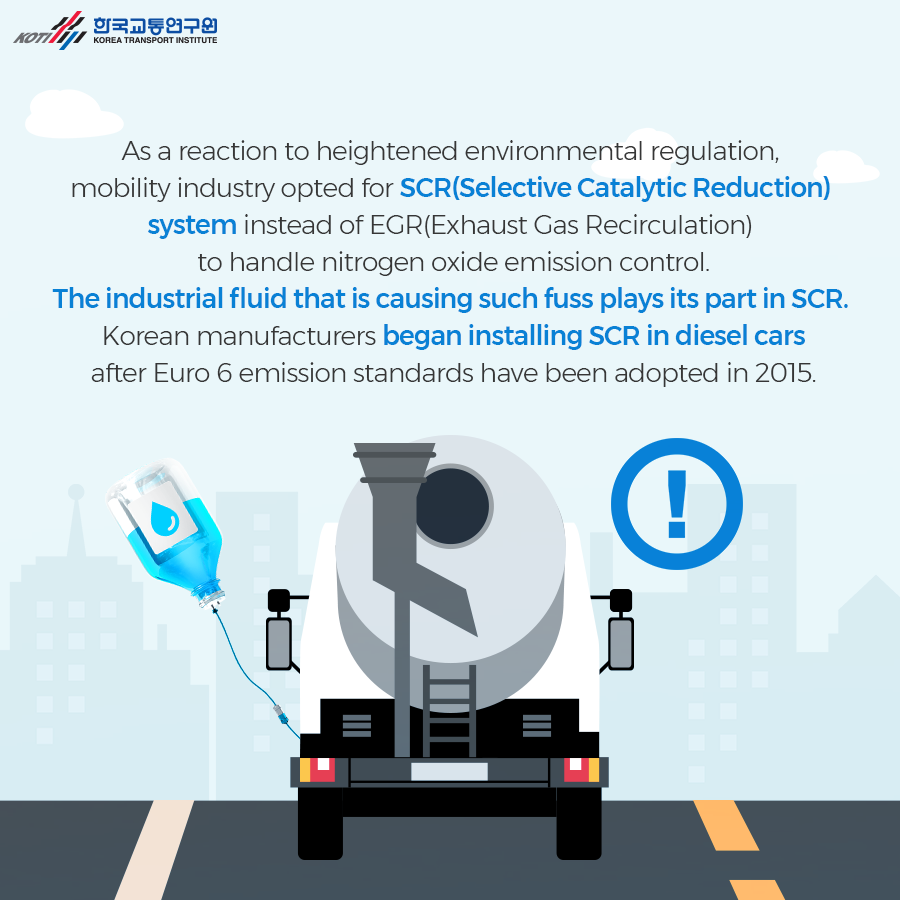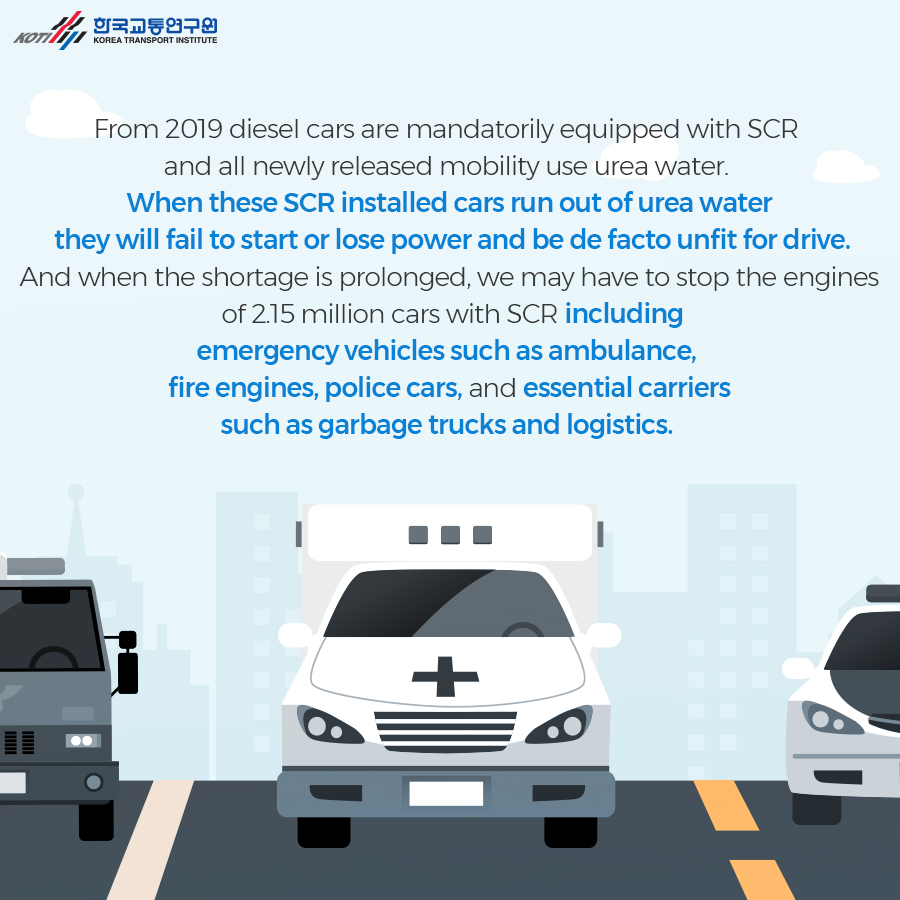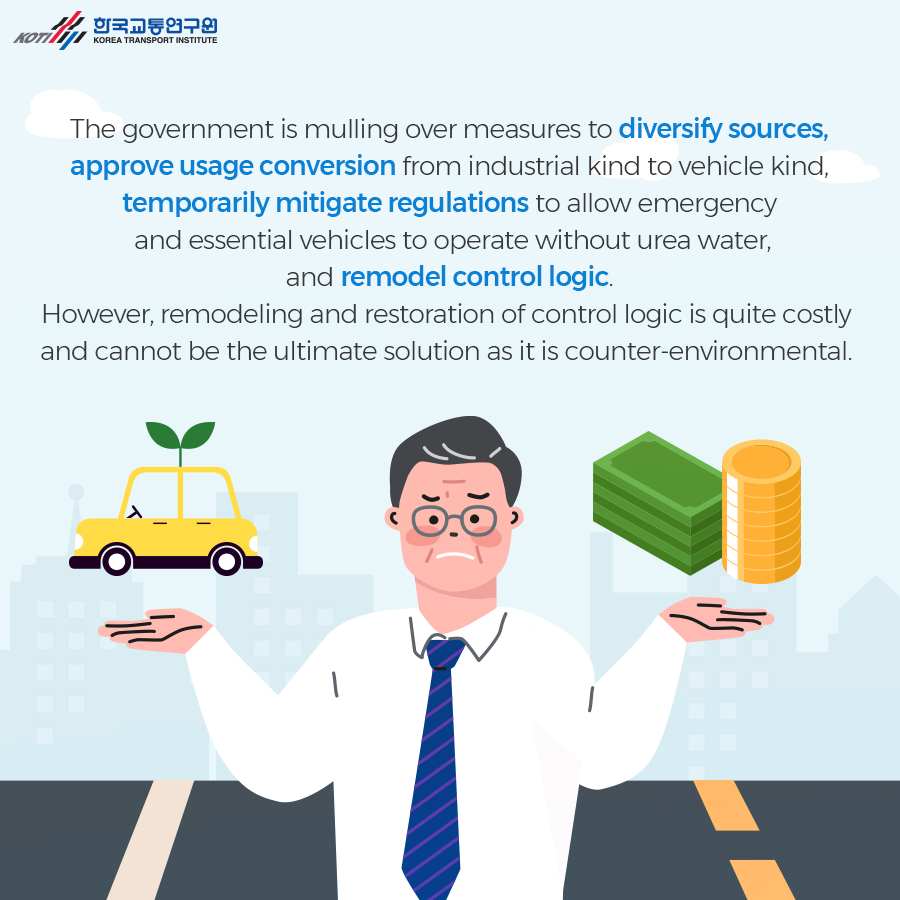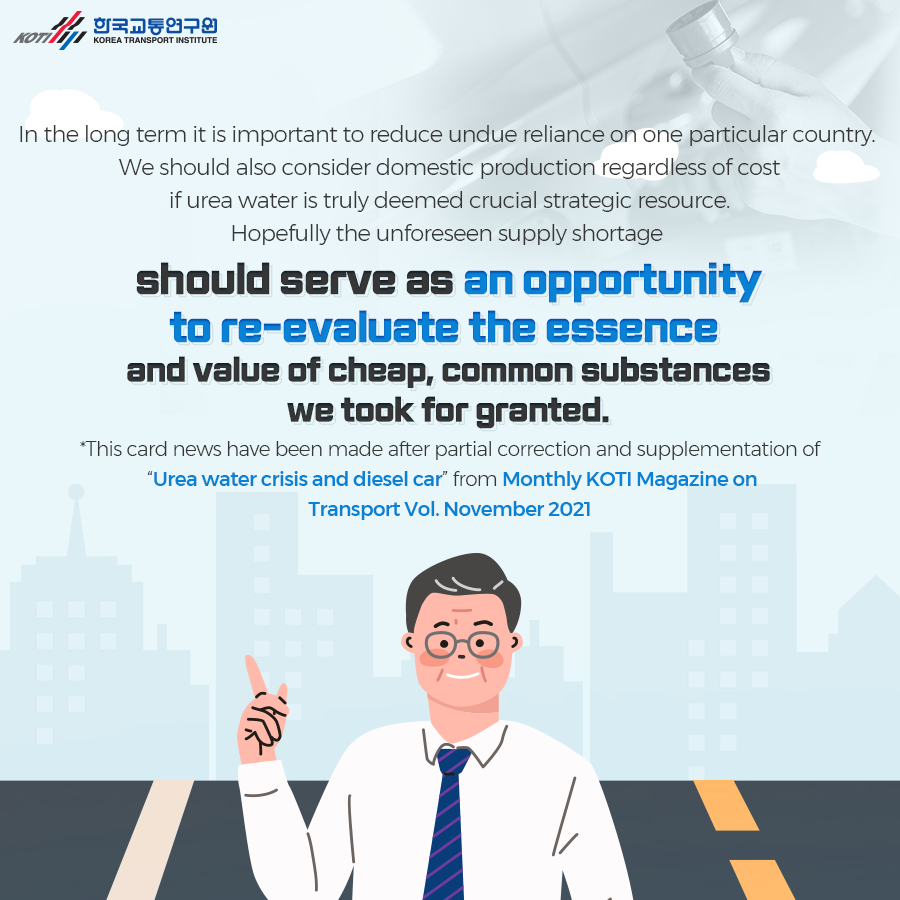Card News

NEWS
KOTI - Korea Transport institute-
# Recent urea water shortage brought financial grief among truckers as many diesel-run vehicles have been idled. We’ll take a closer look at what caused the panic, and what role urea water plays in diesel engines.
# The shortage began with China’s control over coal supply, when China cut coal production to re-characterize itself as an environment-friendly nation before the 2022 Beijing Winter Olympics. Urea is a key fertilizer made from coal, and with wheat sowing season approaching China has practically halted urea export to stabilize fertilizer prices, ultimately making Korean urea water tanks to run dry.
# The chemical in question is a binary compound of 32.5% urea and 67.5% distilled water. And the ghastly fact for us is, it is not home produced.
Vehicles that require urea water pump mount up to approximately 2.15 million (Diesel Passenger: 1.33 million/Cargo: 550,000). We depend heavily on China for most of urea import, and if reliance is continued it may seriously paralyze the road transport network, fertilizer supply system, and so much more.
# Then why is the fluid so imperative in diesel vehicles?
Diesel engines operate by disseminating fuel in high-temperature, compressed air and igniting it. They have excellent thermal efficiency and power compared to gasoline engines, but are environmentally unfriendly. If the fuel does not combust completely exhaust gas is emitted which is the black smoke you see from old diesel cars on road.
# It also forms Nitrogen oxide(NOx), a toxic gas harmful to human body and known as the cause for acid rain and ozone depletion. This is where urea water steps in. Upon entering the gas tank heated urea water turns into ammonia and reacts with nitrogen oxide to tear it apart into hydrogen and nitrogen.
# Europe had long since banned emission of nitrogen oxide in the motoring industry. Euro 6(emission standards for diesel vehicles) lowered the norm emission to reduce nitrogen oxide by 50% compared to previous Euro 5, and the conventional EGR(method to cut down nitrogen oxide by recirculating exhaust gas to engine and lowering temperature) was unfit for the new standards.
# As a reaction to heightened environmental regulation, mobility industry opted for SCR(Selective Catalytic Reduction) system instead of EGR(Exhaust Gas Recirculation) to handle nitrogen oxide emission control. The industrial fluid that is causing such fuss plays its part in SCR. Korean manufacturers began installing SCR in diesel cars after Euro 6 emission standards have been adopted in 2015.
# From 2019 diesel cars are mandatorily equipped with SCR and all newly released mobility use urea water. When these SCR installed cars run out of urea water they will fail to start or lose power and be de facto unfit for drive. And when the shortage is prolonged, we may have to stop the engines of 2.15 million cars with SCR including emergency vehicles such as ambulance, fire engines, police cars, and essential carriers such as garbage trucks and logistics.
# The government is mulling over measures to diversify sources, approve usage conversion from industrial kind to vehicle kind, temporarily mitigate regulations to allow emergency and essential vehicles to operate without urea water, and remodel control logic. However, remodeling and restoration of control logic is quite costly and cannot be the ultimate solution as it is counter-environmental.
# In the long term it is important to reduce undue reliance on one particular country. We should also consider domestic production regardless of cost if urea water is truly deemed crucial strategic resource. Hopefully the unforeseen supply shortage should serve as an opportunity to re-evaluate the essence and value of cheap, common substances we took for granted.
*This card news have been made after partial correction and supplementation of "Urea water crisis and disel car" from Monthly KOTI Magazine on Transport Vol. November 2021
